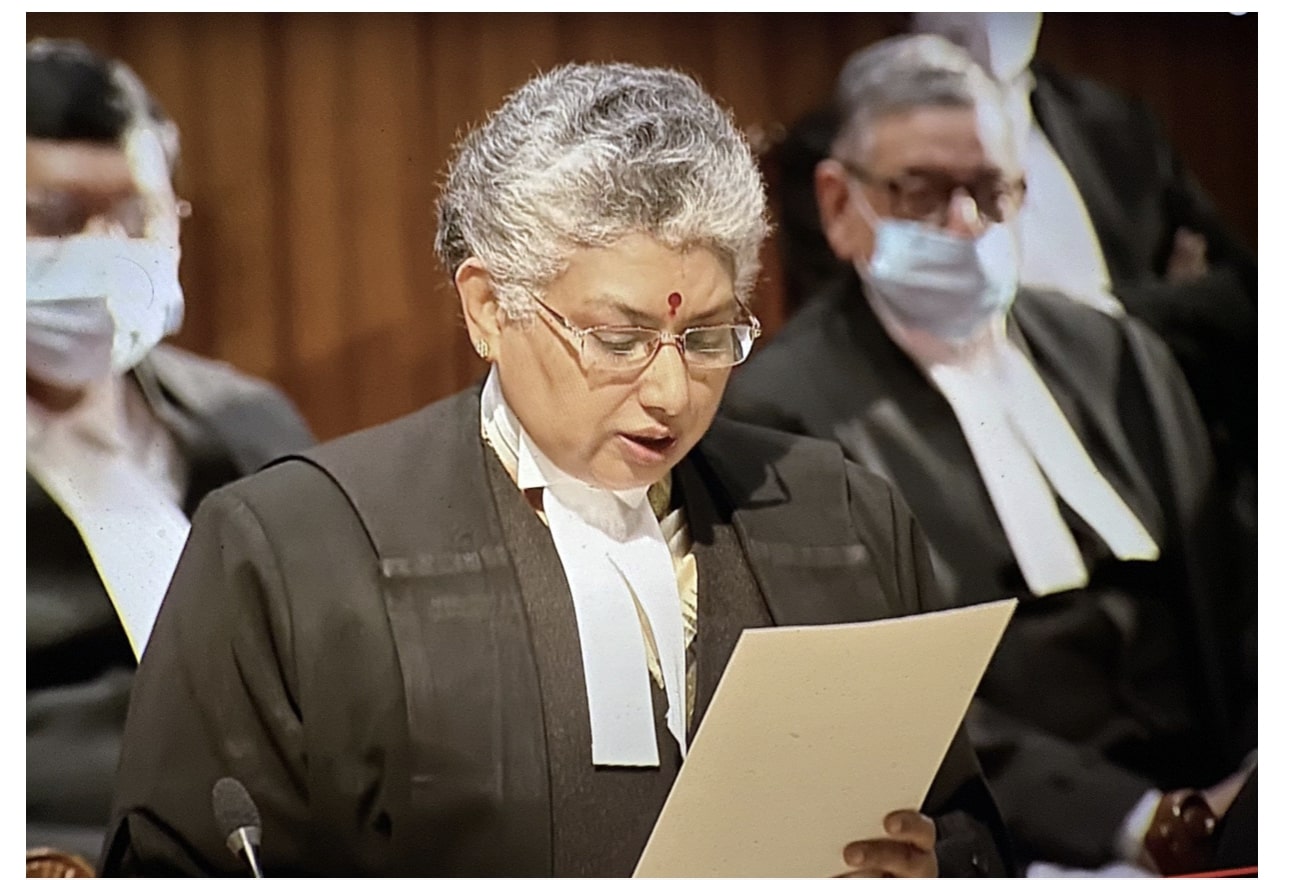Presence Of Women In Judiciary Serves As Catalyst For Development Of Gender Sensitive Judicial Institutions: Justice BV Nagarathna

“We need to create and foster environments, within courts and among the members of the legal fraternity, which would enable women to grow intellectually and demonstrate the merit they possess,” Justice Nagarathna said.
On the occasion of International Women’s Day, the Adhivakta Parishad, which is a Supreme Court Unit, organized a programme at the auditorium of the Indian Society of International Law (ISIL), New Delhi, on the theme “Embracing Equity in Justice Delivery System— Way Ahead”.
Justice Hima Kohli of the Supreme Court of India was the Chief Guest and Justice BV Ngarathna was the Guest of Honour for the event. Justice Nagarathna was not physically present but she sent her speech which mainly emphasized the need to have more women representation in the legal profession and the judiciary.
She stressed the importance of altering the demographics of the judiciary, whether the district or the higher judiciary, to include more women judges.
Being a member of Gender Sensitisation Committee, during the programme she, through her letter, delivered an important message regarding the equal participation of women in judiciary and the protection of women from sexual harassment at workplace.
She mentioned in her speech that it is important to understand that structural inequity manifests in concrete ways and that inequity is not an abstraction. Embracing equity in this context would mean re-examining prevailing assumptions around legal service and justice delivery she said.
"Diversification of the legal profession is critical to dismantling barriers to equity," she said while adding that homogeneity in profiles of lawyers and judges would create a negative loop wherein the new generation would not see themselves as having a place in the system.
She focused on the fact that judiciary at every level is required to be sensitive, independent and free from biases.
"The presence of women in the judiciary serves as a catalyst for the development of strong, independent, accessible and gender-sensitive judicial institutions; more broadly, the achievement of gender justice within society," Justice Nagarathna said.
She spoke about the need to be tough on sexual harassment in the workplace since it was not just about the right to safety, but also the right to livelihood. She said that sexual harassment is a form of discriminatory conduct which hampers women's Constitutional right to equality under Article 14 and dignity under Article 21 of the Constitution of India.
She underlined the importance of the judgment given in the case of Vishakha vs. State of Rajhasthan, (1997) 6 SCC 241, in which the Top Court issued guidelines and norms for preventing and redressing sexual harassment in the workplace.
Another aspect that she stressed upon was securing access to justice which includes enabling litigants to overcome barriers for getting into court, ensuring appropriate treatment is meted out within the court system, which would in-turn help to ensure that litigants obtain just outcomes from legal system.
"I am sure, that by promoting gender diversity in the Judiciary and thereby diversifying the life experiences of those who adjudicate cases, we will be moving several steps closer towards ensuring that a multitude of perspectives have been considered, weighed and balanced in arriving at decisions. Inclusion of women in the Judiciary would also ensure that the decision-making process more responsive, inclusive and participatory at all levels," she said.
At the end she also stated that individuals and organisations in the community are valuable partners in the justice system in the quest towards more equitable justice delivery.
She mentioned that the goal of gender parity through gender sensitisation was not a one-point agenda, but has several phases and a multi-pronged approach involving several stakeholders is required. She concluded by saying, "In conclusion, I must state that to realise the promise of equitable justice delivery, the judiciary is to be, in every sense, a strong institution that is accessible, efficient and committed to protecting the rights of all citizens, particularly, the vulnerable."
